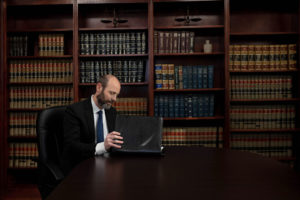Car and trucking accidents can be traumatic events that result in significant physical, emotional, and financial consequences. If you find yourself involved in such an accident, understanding the legal process can help demystify the complex world of accident litigation. In this blog post, we will break down the essential components of car and trucking accident litigation, providing you with a clearer understanding of the legal process. 
The first step in accident litigation is gathering evidence to establish liability. This includes collecting photographs of the accident scene, obtaining police reports, interviewing witnesses, and gathering any other relevant documentation. Evidence is crucial in determining who was at fault and proving the extent of damages.
To successfully pursue a personal injury claim, it is necessary to establish negligence. This involves demonstrating that the other party had a duty of care, breached that duty, and caused your injuries as a result. Negligence can arise from various factors, such as distracted driving, speeding, failure to maintain a safe distance, or violations of trucking regulations.
Notify your insurance company about the accident promptly. They will guide you through the claims process and may help cover medical expenses and property damage. It’s important to note that insurance companies are primarily concerned with minimizing their costs, so it’s advisable to consult with a personal injury attorney in Talladega, or anywhere else in Alabama, to protect your rights and ensure you receive fair compensation.
If you sustain injuries in a car or trucking accident, seeking immediate medical attention is crucial. Even if your injuries seem minor at first, some conditions may have delayed symptoms. Documenting your injuries and following your doctor’s recommendations for treatment will help establish the extent of your damages.
Engaging the services of a personal injury attorney who specializes in car and trucking accidents can significantly benefit your case. An Alabama truck accident attorney will evaluate the facts, assess liability, and guide you through the legal process. They will help negotiate with insurance companies, gather evidence, and represent your interests in court if necessary.
In many cases, a settlement can be reached before going to trial. Your local injury attorney will negotiate with the other party’s insurance company to secure fair compensation for your damages, including medical expenses, lost wages, and pain and suffering. It’s important to rely on your attorney’s expertise to determine whether a settlement offer adequately reflects your losses.
If a fair settlement cannot be reached, your case may proceed to trial. This involves presenting evidence, questioning witnesses, and making arguments in court. Your attorney will advocate for your rights and present your case to the judge or jury, who will ultimately determine the outcome.
Alabama follows a “comparative fault” system, which means that if you are partially responsible for the accident, your compensation may be reduced. Understanding how comparative fault works is important, as it may affect the amount of damages you are entitled to receive.
Demystifying car and trucking accident litigation involves understanding the key components of the legal process. By gathering evidence, establishing negligence, contacting insurance companies, seeking medical attention, consulting with a Birmingham personal injury attorney, negotiating a settlement, and, if necessary, going to trial, you can navigate accident litigation with greater confidence. Remember, the expertise of a personal injury attorney is invaluable in ensuring that your rights are protected and that you receive fair compensation for your damages.
Attorney Steven A. Harris regularly blogs in the areas of family law, bankruptcy, and real estate closings on this website. He is always available in any of the firm’s offices or by phone anytime for a consultation. Mr. Harris tries to provide informative information to the public in easily digestible formats. Hopefully you enjoyed this article and feel free to supply any feedback. We appreciate our readers and love to hear from you!



